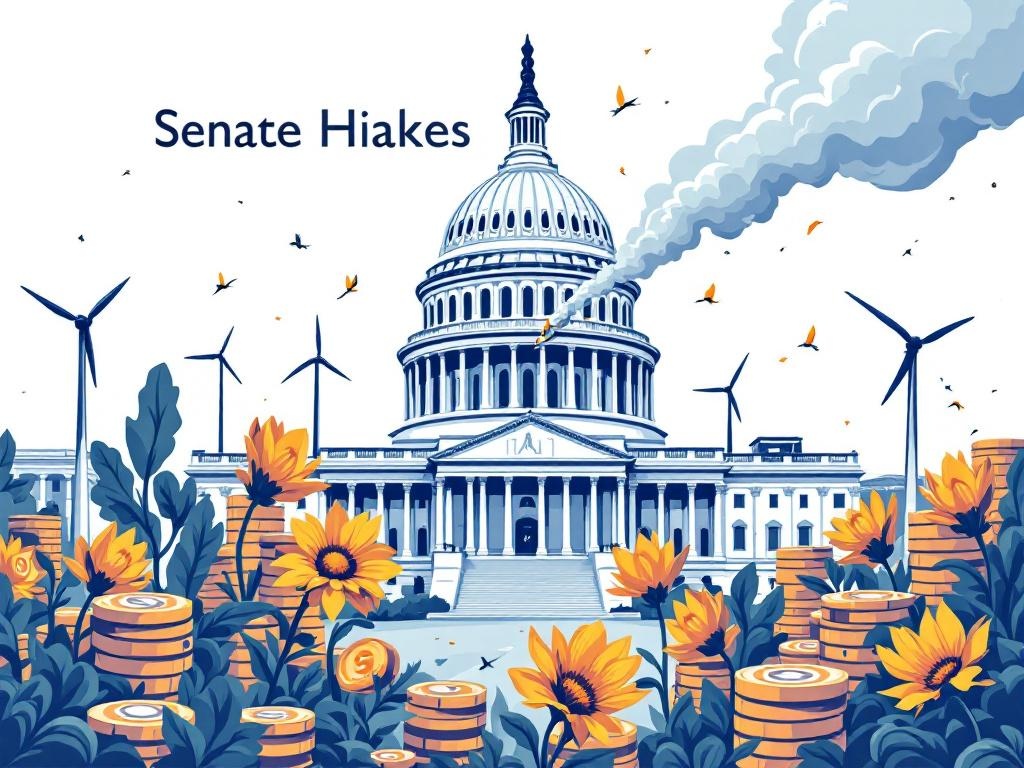Proposed Senate Tax Hikes Threaten Renewable Energy Projects

Washington, D.C., Monday, 30 June 2025.
The Senate’s proposed tax increases on wind and solar projects could raise costs by 10-20%, threatening green energy investments and resulting in potential $4-$7 billion in added industry costs by 2036.
Implications for Renewable Investments
The United States Senate, driven by the GOP, has put forth a new draft of the ‘Big, Beautiful Bill’ that could impose significant financial burdens on the renewable energy sector. This legislation, spearheaded by President Trump, is estimated to result in a cost increase for wind and solar projects ranging from 10% to 20% [1]. According to the American Clean Power Association, the bill threatens to impose an additional $4-$7 billion in taxes on clean energy initiatives by 2036 [1]. If enacted, these changes could halt the growth of renewable projects across the nation, as the plan also involves phasing out supportive tax credits [1][2].
Political and Economic Repercussions
Proponents of the bill argue that it will bring crucial tax relief to middle and working-class families, potentially fueling a broad public debate about the balance between environmental costs and economic support [2]. The Senate proposal, which demands swift action to pass before the 4 July 2025 deadline, has drawn criticism from renewable energy stakeholders who warn that diminishing tax incentives would severely deter investments necessary for achieving climate goals [3]. As the timeline for the legislation’s implementation remains undefined, energy groups continue to express concern over its long-term impact on the clean energy landscape [1][4].
Industry Response and Outlook
Elon Musk, CEO of Tesla, has labeled the Senate’s approach as ‘utterly insane and destructive,’ emphasizing that it prioritizes outdated industries while significantly damaging future-oriented sectors like solar and battery technologies [1]. The Rhodium Group’s analysis indicates that eliminating existing tax credits could lead to a staggering 72% drop in new wind and solar installations over the next decade [1]. This outcome could jeopardize the U.S. commitments to clean energy targets and disrupt efforts to integrate sustainable sources into the national grid [3].
Debate on Economic Support Measures
The introduction of tax increases contrasts with the bill’s other features, which propose $3.8 trillion in tax reductions aimed at locking in Trump-era tax cuts and expanding the standard deduction for older adults [2]. Despite these concessions, the Congressional Budget Office estimates an increase in federal debt by nearly $3 trillion over the subsequent decade, fueling criticism and political contention [2]. As the Senate continues deliberations, it remains unclear how or if modifications will be made to accommodate bipartisan concerns and safeguard renewable investments [2][3].